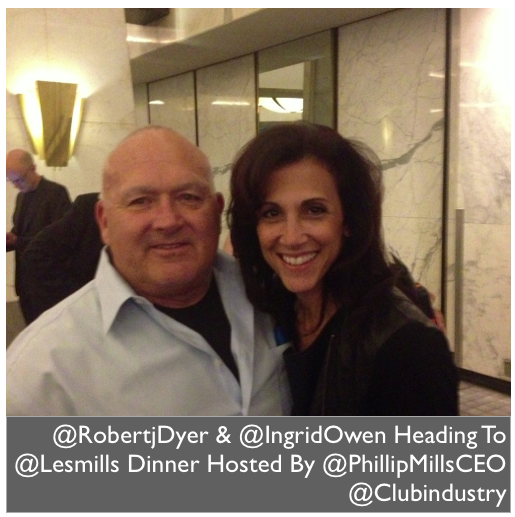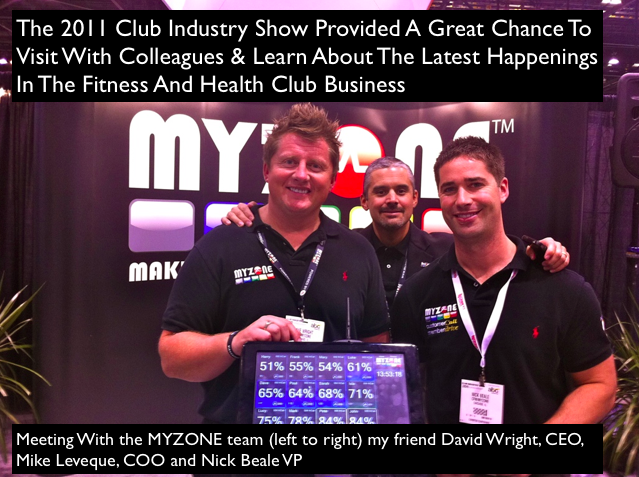
Nothing seems to get the rhetorical juices flowing more readily than a thoughtful discussion around this topic, "Where is the health club industry headed?". I've enjoyed debating this point with colleagues for a few years now, as the question of Health Club growth and or maturation always draws controversy and debate. This is most often the case when long-time participants or advocates of the extant Health Club Industry defend its future promise, which I understand and appreciate. However, as is often the case when emotions run high, logic can be hard to hold onto. You see I believe the EXTANT Health Club Industry is truly in or near a point of maturation, but don't let that alarm you because there is still a bright future ahead, we just have to see the forest for the trees; I'll explain.
Maturity Defined
Recently, my friend Stuart Goldman of Club Industry crafted an article, "The Top 10 Reasons Why The Health Club Industry Has Not Matured". In it he shares the view of long time industry insider, Rick Caro, regarding why the health club business HAS NOT matured and sets forth a basis for this view. His views are those shared by many. I'd like to share an alternate explanation and analysis, but its important to clarify a few points first.
The context and definition of "Mature" among academics and financiers refers to the classically defined stages an industry goes through during the course of its lifecycle. An industry lifecycle is broken into five separate phases: Early stages phase, innovation phase, cost/shakeout phase, maturity phase and decline phase. Each of these phases have various attributes.
The mature stage is characterized as follows:
"An industry in which future growth is limited so that firms in it must grow by taking sales from competitors or by diversifying."
Other characteristics of a mature industry are an inability to raise prices, stable to declining profitability and consolidation among brands: sound familiar ?
Specifically, the Club Industry article sets forth a few conditions of maturity that are refutable when assessing industry maturation. I will not address each one, but an example is the reference to the lack of diverse business models. This isn't a good example to use in arguing the health club industry is NOT mature. There are clearly discernable segments in the health club industry today. I'll offer up just a few: Key clubs like Snap Fitness and Anytime Fitness which comprised a very large share of unit growth in the past decade; Lifetime Fitness, with its resort like large format health clubs offering hi-end food and beverage, water park like swimming areas and extensive child care; and finally the budget model clubs like Planet Fitness. There are many more segments, including, the emergent cycling studios niche and the recent deal to open hundreds of truck stop based locations by Snap Fitness; don't think that is a distinct segment ?. These are clearly distinct segments that represent diverse business models. These segments meet the classic definition of maturation in that firms are increasingly needing to diversify to steal share in a profitable way, as overall growth rates have declined.
In addition to diversity, taking share from competitors, if not done through new unit growth, is best achieved via consolidation and this is another sign of the shake out period leading up to maturity. It is irrefutable that most of the largest global health club chains are investigating restructuring, consolidations and or exits. This is because their growth has stalled and their profitability has suffered. Fitness First was unable to raise funds via a public offering in Asia late last year and is now looking to restructure its debt amid declining performance. 24 Hour Fitness has seen its debt being restructured , and the company's ownership is seeking to exit the investment this year. LA Fitness recently acquired Bally's , which had been pursued by Gold's Gym International and many if not most of the VC owned regional US chains are looking at "Strategic" options. In other words, their business models are not producing desired results and so they are investigating a sale of operations or a consolidation play. This is clearly a sign of the cost/shakeout phase that is the predecessor for maturity.
I will not go into further detail but it is clear that traditional bricks and mortar health club operating profits have declined over the years, measurable participation by consumers in the health club membership model have not appreciated much in the past decade and prices for club memberships have been declining on an inflation adjusted basis for some time (see content on industry trends here and here).
Its not all doom and gloom, however. This is part of a necessary process that will lay the ground for a brighter future to come but that future is not going to come via the traditional, or as I call them "EXTANT" health club membership models. Here's why.
Why Maturity Is A Good Thing
Hopefully some of us have learned our lessons from the past decade; unsustainable growth is bad. When you add capacity to any industry that outstrips demand long term, a correction is in order. What we've also learned is that the traditional industry life cycles for many industries have morphed due to disruption. As the result of advancing technology, increasing globalism and shifting demographics a revolution is underway that is enabling industries to recreate themselves in new ways. The health club industry, I believe, will be one of them.
"S" curve theory explains how this works. Most of the pioneering work on “S” curves was done by biologists who were describing the behavior of viruses. Even Jonas Salk, inventor of the Salk vaccine for polio, wrote extensively on “S” curves as a descriptor for how viruses compete and mutate to propagate and succeed. This laid the groundwork for business academics and professionals to use “S” curves as tools for describing business behavior. After all, businesses compete and desire to propagate, which is similar to viruses, so shouldn’t the analogy hold true?
Now we approach the market for health, fitness and wellness. According to industry analyst firm RNCOS, the mobile health market had a year-over-year growth rate of around 17% in 2010, and is estimated to be worth $2.1 billion at the end of 2011. The report also said the mobile health market is expected to grow with a CAGR of nearly 22% from 2012 to 2014. Analysts watching the remote patient monitoring market segment size that market at $9.3 billion by 2014. Technology is here and its going to reengineer how things work. From trainers using combinations of skype and mobile apps to deliver PT in new ways to approaching reforms that will enable the monetization of wellness through programs focused on outcomes, thus shifting the "membership" model which remains the center of the health club industry's monetization model, there are new things emerging that will enable the potential for a redesign of fitness and wellness delivery in more efficient ways that will make the EXTANT health club membership model less relevant to the future.

Does that mean traditional health clubs are on the way out ? Hardly. As I often tell people, think of the music industry in the past 20 years; vinyl records are starting to reappear at Best Buy because digital music is purchased via the web. There are still movie theatres, although entertainment is clearly moving to alternate distribution channels. These same tenants hold true for the health club industry. Be prepared for a lot of change because to achieve new levels of growth will require it. You see, what the Health Club Industry is now is certainly reaching the point of a mature stage and to grow will require changing what the extant health club membership model is at its core. Really smart competitors understand this and are in the process of doing just that (S Curve).
A big part of the future will relate to monetizing fitness and wellness outcomes, not membership dues. The future will require offering a seemless interface between the digital and physical customer experience, not bricks and mortar only. The future will necessitate coaching and support, not limited to physical presence and provided via automated systems and more (see my 2012 Trends Report Here). It will also entail increasing segmentation and broad consolidation, think the retail industry during the past few decades.
So tell me, Bryan O'Rourke, what do you think about the Extant Health Club Industry ? Do you think business models will change dramatically in the years ahead to meet the opportunity of wellness, reengineering the industry for better or worse ? Do you think we are in a mature phase or not?
About the author:
Bryan O’Rourke is a health club industry expert, technologist, financier, and shareholder and executive in several fitness companies. He consults with numerous global brands, serves as a member of the GGFA Think Tank is Chair of the Medical Fitness Association’s Education Committee and a partner in the Flywheel Group. To learn more contact Bryan here today .
















